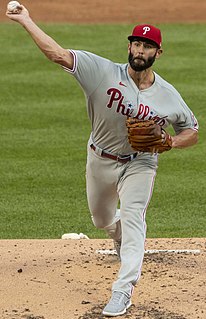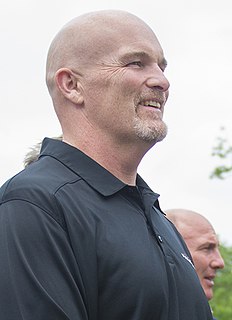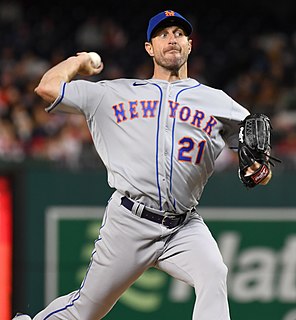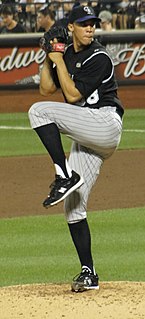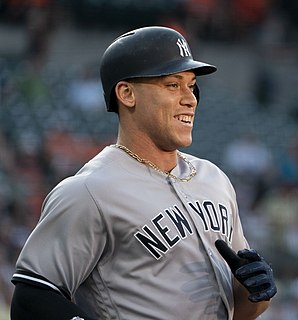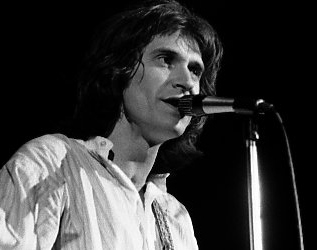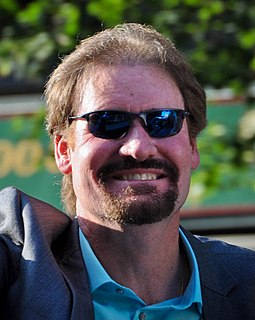A Quote by Jake Arrieta
Typically, being under the strike zone with the sinker isn't a big issue. I need to be a little bit higher with the strike zone earlier in the count. If you miss under with one here and there when you're ahead, it's really not an issue.
Related Quotes
I'm the kind of guy who, if I look inside and they throw me a fastball outside, and it's a strike, I'm going to swing. Everything in the strike zone, I'm going to swing. Doesn't matter if it's a fastball, changeup, breaking ball. If it's in the strike zone and it's something you like, you've got to swing.
We try to exert a Ted Williams kind of discipline. In his book The Science of Hitting, Ted explains that he carved the strike zone into 77 cells, each the size of a baseball. Swinging only at balls in his "best" cell, he knew, would allow him to bat .400; reaching for balls in his "worst" spot, the low outside corner of the strike zone, would reduce him to .230. In other words, waiting for the fat pitch would mean a trip to the Hall of Fame; swinging indiscriminately would mean a ticket to the minors.
We are on strike, we, the men of the mind. We are on strike against self-immolation. We are on strike against the creed of unearned rewards and unrewarded duties. We are on strike against the dogma that the pursuit of one's happiness is evil. We are on strike against the doctrine that life is guilt.
